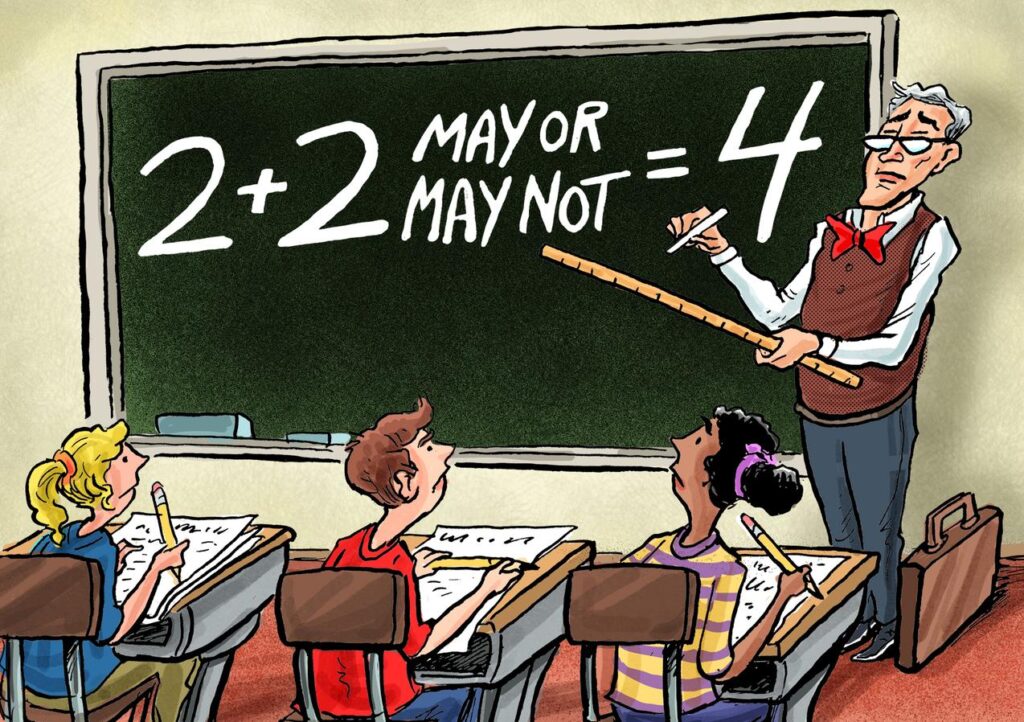In recent years, a troubling trend has emerged in classrooms across the country. Instead of focusing on essential subjects that equip students for the real world, educators are spending valuable class time on frivolous topics like gender theory and LGBTQ-related issues. This shift not only detracts from academic rigor but also undermines the primary purpose of education: preparing students to be knowledgeable, competent, and productive members of society.
The Fallacy of the “Open Classroom”

Advocates for the so-called “open classroom” insist that schools should expose students to every idea under the sun, no matter how controversial or irrelevant. This philosophy may sound noble, but it’s inherently flawed. The reality is that classroom time is finite. Every minute spent on divisive or unproductive topics is a minute lost to teaching critical skills and knowledge. Students deserve better than to have their education hijacked by ideological agendas.
Take, for example, the push to include authors like Ta-Nehisi Coates and Kimberlé Crenshaw in school curricula. While these figures are celebrated in certain academic and social circles, their works do little to enhance a student’s understanding of history, literature, or critical thinking. Meanwhile, timeless figures like Shakespeare, Tolstoy, and Orwell, authors whose works have shaped civilizations, are being sidelined. The classics endure because they grapple with universal human experiences and provide insights that remain relevant across generations. Why, then, are they being sacrificed at the altar of political correctness?
The Cost of Ideological Indoctrination
Classrooms should be places of intellectual enrichment, yet many have become battlegrounds for ideological indoctrination. Teaching controversial gender theories to children is not only unnecessary but also inappropriate. Such topics are not universally agreed upon, and introducing them in an educational setting often confuses rather than enlightens young minds. Moreover, these discussions often come at the expense of core subjects like math, science, and language arts, areas that actually determine a student’s ability to succeed in the real world.
Consider this: every second spent debating whether 2+2 could equal 5 is a second not spent teaching the immutable truth that 2+2 equals 4. Similarly, the time devoted to exploring gender identities could instead be used to teach algebra, chemistry, or world history. It is a dereliction of duty for educators to squander precious classroom hours on subjects that neither improve students’ cognitive abilities nor prepare them for the challenges of adulthood.
The Erosion of Academic Standards
Another consequence of prioritizing unimportant subjects is the erosion of academic standards. When schools emphasize inclusivity and diversity over merit and excellence, the quality of education inevitably suffers. Lowering the bar to accommodate ideological agendas does a disservice to students, leaving them ill-prepared for higher education and the workforce.
Math, science, and literacy skills are the cornerstones of a well-rounded education. Yet, these disciplines are increasingly being diluted or overshadowed by trendy social issues. For instance, instead of mastering grammar and composition, students are being encouraged to write about their “lived experiences” or “identity.” While personal expression has its place, it should not come at the expense of learning how to write clearly, persuasively, and correctly. Similarly, math curricula are being infused with so-called “social justice math,” which prioritizes political narratives over objective problem-solving.
The Role of Parents and Policy Makers
Parents and policymakers must take a stand against this misguided direction in education. Schools should focus on teaching facts, not feelings; knowledge, not narratives. The primary goal of education should be to provide students with the skills and knowledge they need to navigate the complexities of the modern world, not to shape their ideological views.
One solution is to reevaluate and streamline school curricula. Topics that do not directly contribute to a student’s intellectual growth or practical skills should be removed. Subjects like advanced mathematics, physics, classic literature, and world history should take precedence over the ephemeral trends of the day. Additionally, educators should be held accountable for ensuring that classroom time is used effectively and appropriately.
The Danger of Neglecting What Matters
The stakes could not be higher. When we fail to prioritize essential subjects, we risk producing a generation of students who lack critical thinking skills, scientific literacy, and cultural knowledge. These deficiencies will have far-reaching consequences, not only for the students themselves but for society as a whole. A poorly educated populace is less equipped to make informed decisions, contribute to the economy, or engage meaningfully in civic life.
Refocus on Real Education
The classroom is not a playground for untested ideas or social experiments. It is a sacred space where young minds should be cultivated and prepared for the challenges of life. Wasting time on divisive and unproductive subjects like gender theory and LGBTQ issues does nothing to serve this purpose. Instead, we should return to teaching the timeless truths and essential skills that have formed the foundation of education for centuries.
By focusing on what truly matters, we can ensure that students leave school not just with a diploma but with the knowledge, skills, and character needed to thrive. Let’s put an end to the distractions and get back to the business of real education.
